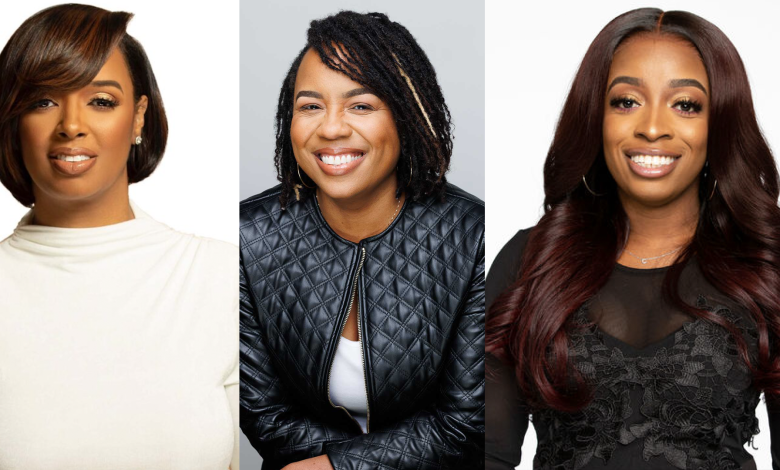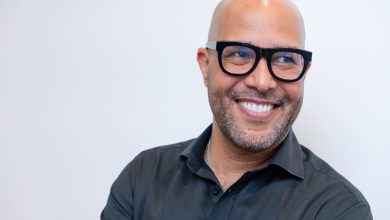3 Black Women Entrepreneurs Launch Community-Driven Business Schools For And By Detroiters In An Aim To Bridge The Wealth Gap


Three Black women aim to close the racial wealth gap by building the access they want to see, launching culturally grounded, community-owned business schools by and for Detroiters.
According to The Michigan Chronicle, Racheal Allen, Ebony Cochran, and Jessie Hayes are determined to build lasting infrastructure for the city’s overlooked entrepreneurs — proving that real business education isn’t just about profits; it’s about economic justice, shared knowledge, and long-term change.
Ebony Cochran
In June, Cochran — Michigan’s first Black woman to own a Little Caesars franchise, as AFROTECH™ reported in 2022 — founded the Detroit Wealth Club, a 7,300-square-foot community business school on the city’s east side focused on entrepreneurship, credit literacy, financial planning, and real estate, The Michigan Chronicle reports.
Offering educational programming, mentorship, peer accountability, and expert networks, Cochran calls it a movement — one she’s backed with $155,000 of her own money, a $50,000 Motor City Match grant, and $10,000 from Build Institute.
“We’ve waited long enough to be invited to spaces that weren’t built with us in mind,” Cochran said, per The Michigan Chronicle. “This is about rewriting the narrative of what wealth looks like in Detroit—on our terms.”
Rachael Allen
Since 2019, Allen’s Farmington Hills-based nonprofit, Operations School (OSchool), has helped nearly 2,000 entrepreneurs and nonprofit leaders with legal registration, operations, marketing, and long-term planning for free through its “Get Your Business Legit” program.
Like Cochran, Allen launched the effort with over $200,000 of her own funds before earning a $2.8 million grant from the Michigan Economic Development Corporation — the only Black woman among 27 grantees statewide.
“I started this with no funding, which isn’t something a lot of people can say,” Allen told The Michigan Chronicle. “It’s given me a greater sense of responsibility to keep this program going and to keep building what is possible.”
Per the outlet, OSchool tackles structural barriers head-on, offering tools, coaching, and a hub rooted in “Black arts, culture, and innovation.” In 2024, Allen began transitioning from daily leadership to scale nationally through new partnerships with Apple, the Lansing Economic Development Corporation, and the Michigan Black Business Alliance.
Jessie Hayes
In Corktown, Hayes founded The Hayes Institute of Esthetics & Entrepreneurship — Michigan’s first business school focused on multicultural skincare and beauty ownership, The Michigan Chronicle reports.
After franchising Detroit’s first facial bar, Hayes launched the institute — which blends state-approved esthetics licensing with entrepreneurial training — to close gaps in access and representation.
According to the publication, with a 750-hour curriculum centered on multicultural skincare, acne treatment, and product development, plus business tracks in startup strategy, grant funding, and executive leadership, Hayes is building beauty CEOs in an industry that profits but rarely reinvests in Black culture — a determination that spans generations.
“Opening The Hayes Institute is more than launching a school,” Hayes said to the outlet. “It’s about creating a space where legacy meets purpose and filling a gap within the beauty industry. As someone raised in a family of entrepreneurs, CEOs, and leaders, this institution is my way of giving back, building up, and ensuring that our community of beauty entrepreneurs are profitable, empowered, and have economic opportunity.”
Black Women Entrepreneurs
The women’s work echoes advice from billionaire Mark Cuban, who told Essence ahead of a SXSW 2025 panel that Black women entrepreneurs should consider bootstrapping their businesses just as he did early in his career, AFROTECH™ previously reported.
Cuban believes self-funding fosters control, long-term stability, and independence, especially given that Black women, whom CNBC reports are the fastest-growing group of entrepreneurs in the U.S., receive only 0.35% of venture capital, per Forbes.
In Detroit, Black women lead one of the highest concentrations of women-owned businesses, per The Michigan Chronicle.
“We’re not teaching business for performance,” Cochran said, per The Michigan Chronicle. “We’re creating a space where people can understand their power, own it, and grow it.”




